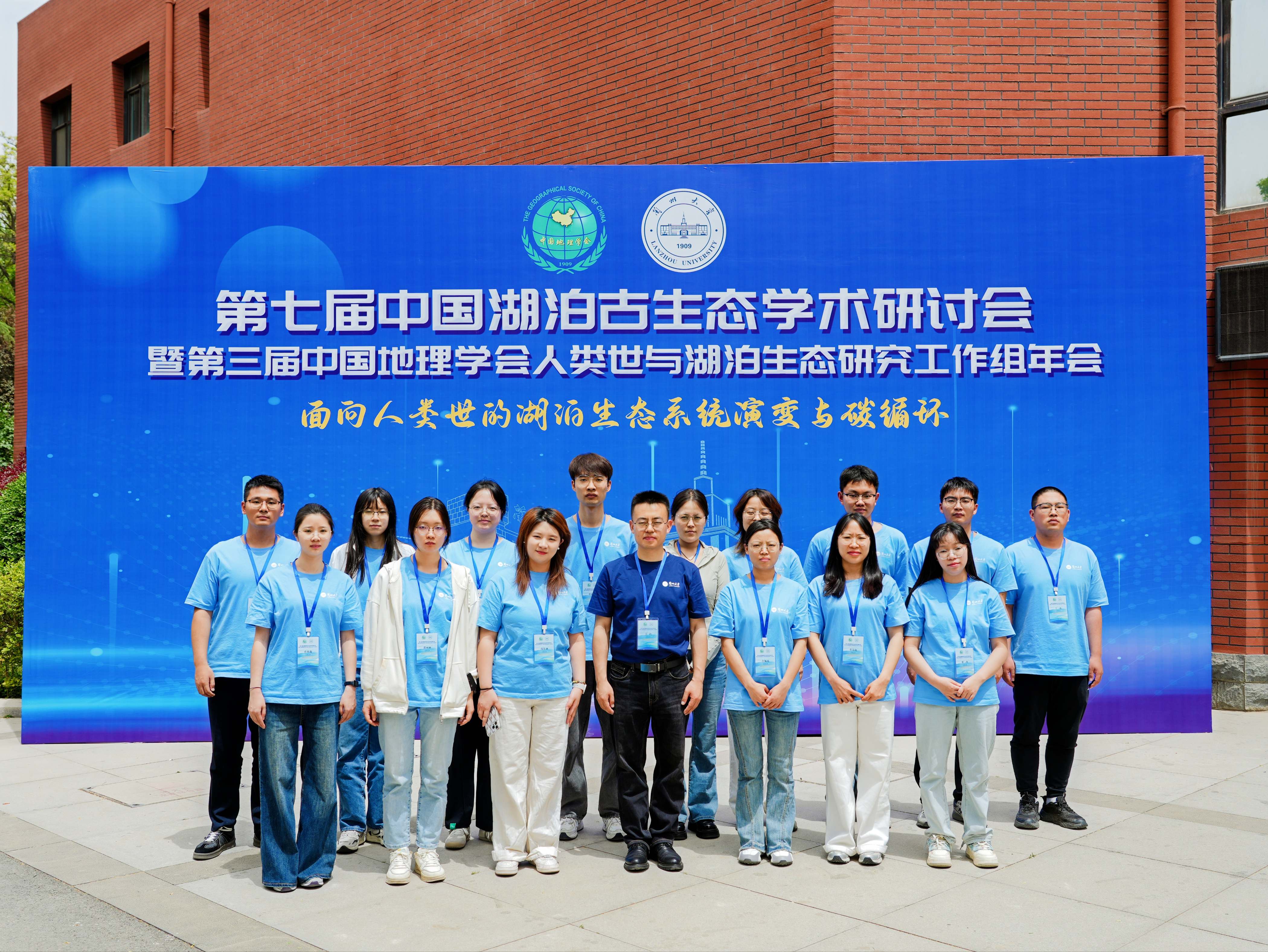From May 16 to 18, the7th Chinese Symposium on Lake Paleoecology and the 3rd Annual Meeting of the Anthropocene and Lake Ecology Working Group of the Chinese Geographical Societywere held at the Chengguan Campus of Lanzhou University. The conference theme was"Lake Ecosystem Evolution and Carbon Cycling in the Anthropocene."The event was hosted by the Anthropocene and Lake Ecology Working Group of the Chinese Geographical Society, co-organized by theSchool of Earth and Environmental Sciencesof Lanzhou University and the Key Laboratory of Western China's Environmental Systems, Ministry of Education, and supported by the Gansu Geographical Society, Northwest Institute of Eco-Environment and Resources (CAS), and other institutions.
A total of 190 representatives from 44 universities and research institutes attended, including Lanzhou University, Peking University, Nanjing University, Tongji University, Yunnan University, Northwest University, Yunnan Normal University, Guangzhou University, China University of Geosciences (Wuhan), Hebei Normal University, Fujian Normal University, South China Normal University, Institute of Tibetan Plateau Research (CAS), Nanjing Institute of Geography and Limnology (CAS), Northwest Institute of Eco-Environment and Resources (CAS), Institute of Earth Environment (CAS), Institute of Geology and Geophysics (CAS), Institute of Geochemistry (CAS), and Institute of Hydrogeology and Environmental Geology (CAGS).
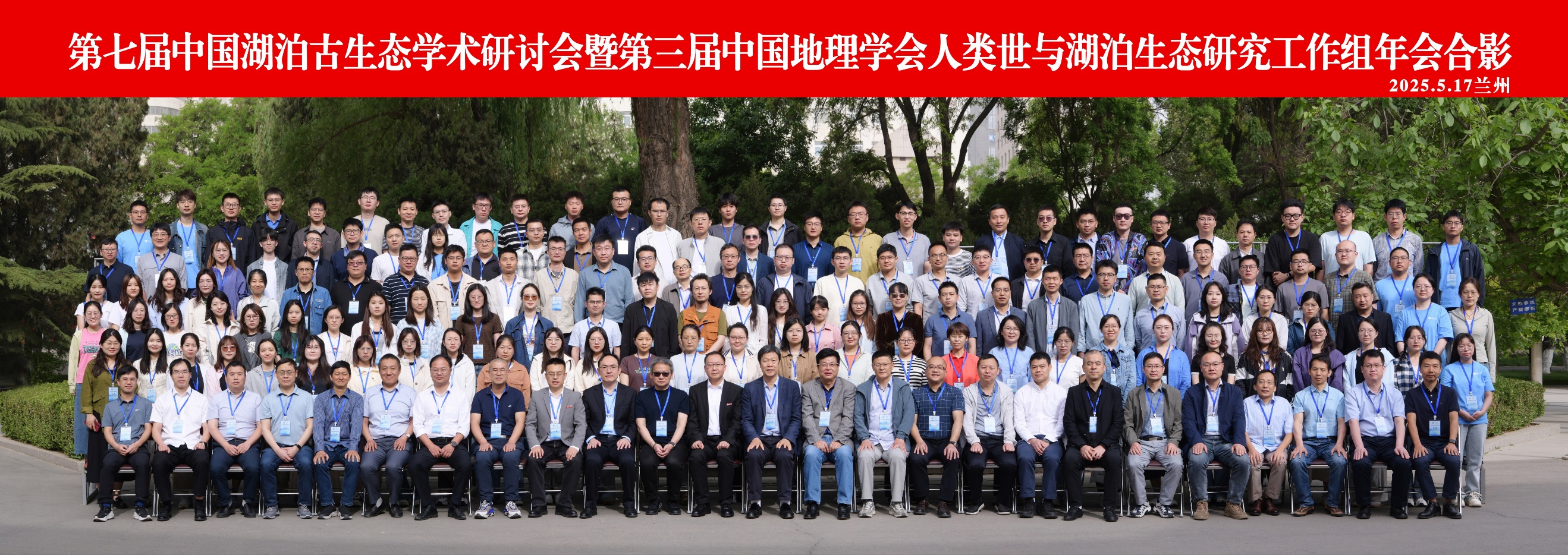
The opening ceremony was held on the morning of May 17. Speeches were delivered by Prof. Wang Wei, Vice President of Lanzhou University;Academician Chen Fahu, Fellow of the Chinese Academy of Sciences (CAS) and The World Academy of Sciences (TWAS), Executive Vice President of the Chinese Geographical Society, and researcher at the Institute of Tibetan Plateau Research (CAS); and Prof. Wu Duo, Secretary-General of the conference organizing committee and faculty member of the School of Earth and Environmental Sciences, Lanzhou University. The ceremony was chaired by Prof. Li Yu, Dean of the School of Earth and Environmental Sciences.

Academician Chen Fahustated that lakes serve multiple functions, including water supply, flood control, biodiversity conservation, and climate regulation, and are critical carbon sinks for achieving China's "Dual Carbon" strategy. He reviewed breakthroughs in lake paleoecological research by Chinese scholars over the past three decades and emphasized the urgent need to decode lake evolution patterns and assess ecological response mechanisms in the Anthropocene through paleoecological studies, translating historical insights into modern governance strategies. In response to carbon neutrality goals, he proposed that lake science should deepen research on carbon cycling processes and explore nature-based solutions, calling for in-depth exchanges on the conference theme to advance disciplinary innovation.
The conference featured invited presentations by:Prof. Zhang Hucai(Yunnan University): "Paleoecology and Paleoenvironment—Research and Challenges",Prof. Liu Jianbao(Peking University): "Global Lake-Climate Effects Since 1850",Researcher Tan Liangcheng(Institute of Earth Environment, CAS): "Key Markers and Integrated Index Systems for the Anthropocene",Prof. Huang Xiaozhong(Lanzhou University): "The Anthropocene in the Geological Epoch: Timing, Characteristics, and Impacts—A Historical Context",Prof. Cheng Jun(Nanjing University of Information Science and Technology): "The Mystery of Holocene Seasonal Temperatures",Researcher Shu Lele(Northwest Institute of Eco-Environment and Resources, CAS): "Reductionism vs. Holism: Reflections on Modeling Approaches"

The conference included 46 the matic oral presentations and 11 poster presentations, focusing on topics such as Holocene lake ecological-climatic-environmental reconstruction, Anthropocene lake ecological responses and vulnerability, lake ecosystem regime shifts and modeling, lake carbon cycling and sequestration, and lake biogeochemical cycles. Experts engaged in thorough discussions on these themes.
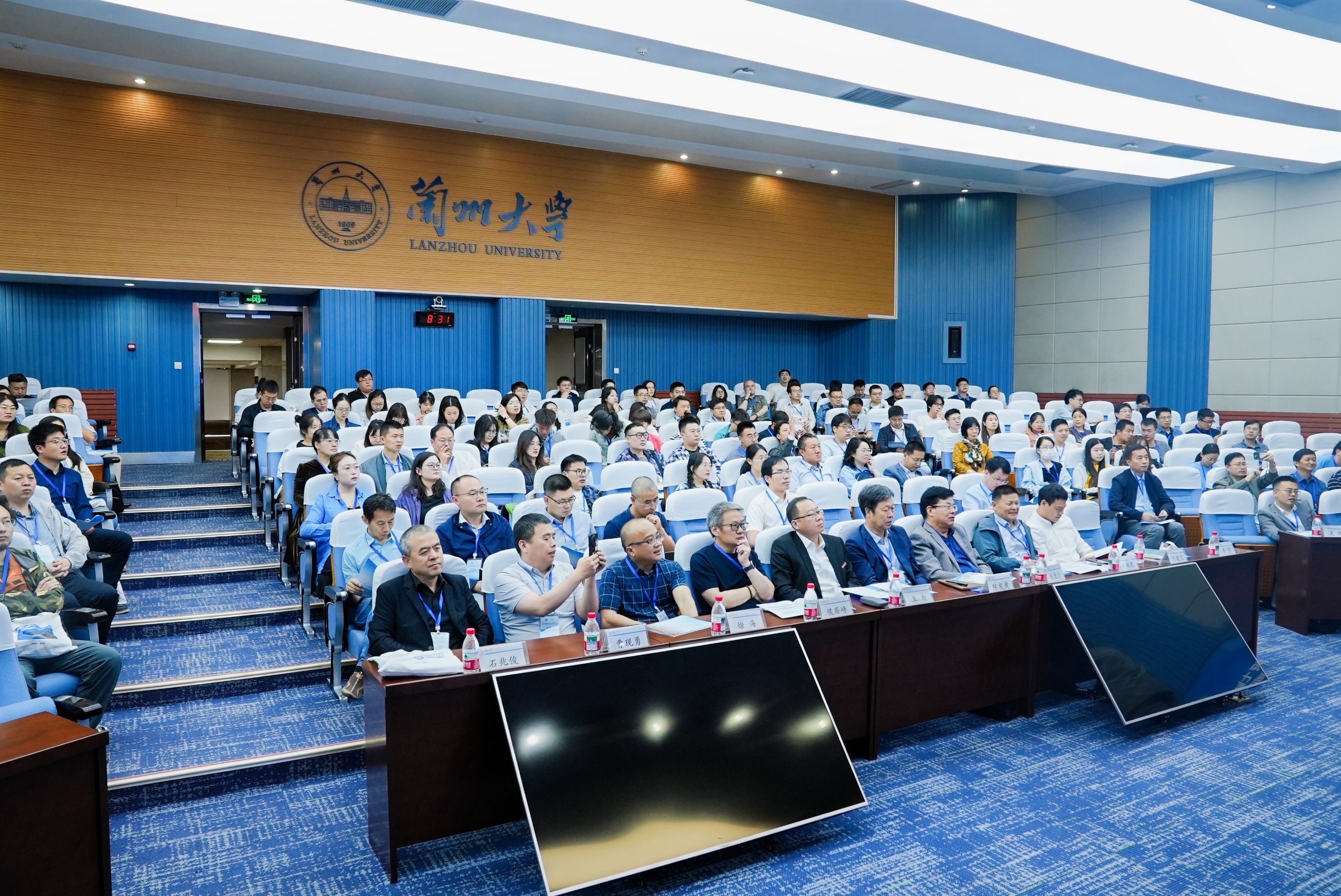
On the afternoon of May 17, the 2nd Committee Meeting of the Working Groupwas held. Prof. Wu Duo reported on the conference organization.Prof. Wang Rong, Secretary-General of the Working Group and researcher at the Nanjing Institute of Geography and Limnology (CAS), summarized annual progress and outlined key tasks for the next year.
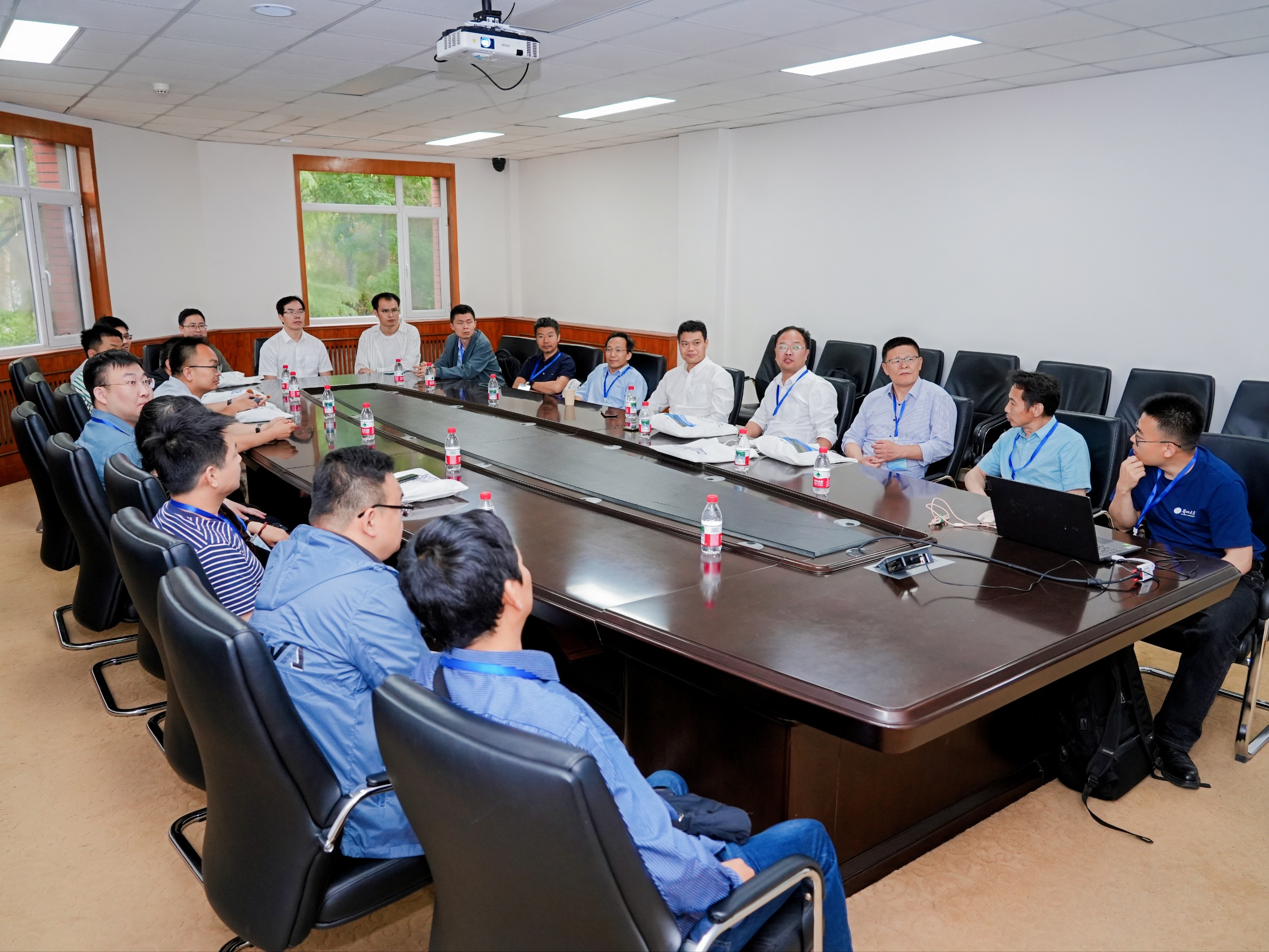
On the afternoon of May 18, a field excursion to the Lanzhou Shuping Colorful Hillswas conducted, with 40 participants discussing sediment context, formation mechanisms, geomorphic types, and human historical impacts.
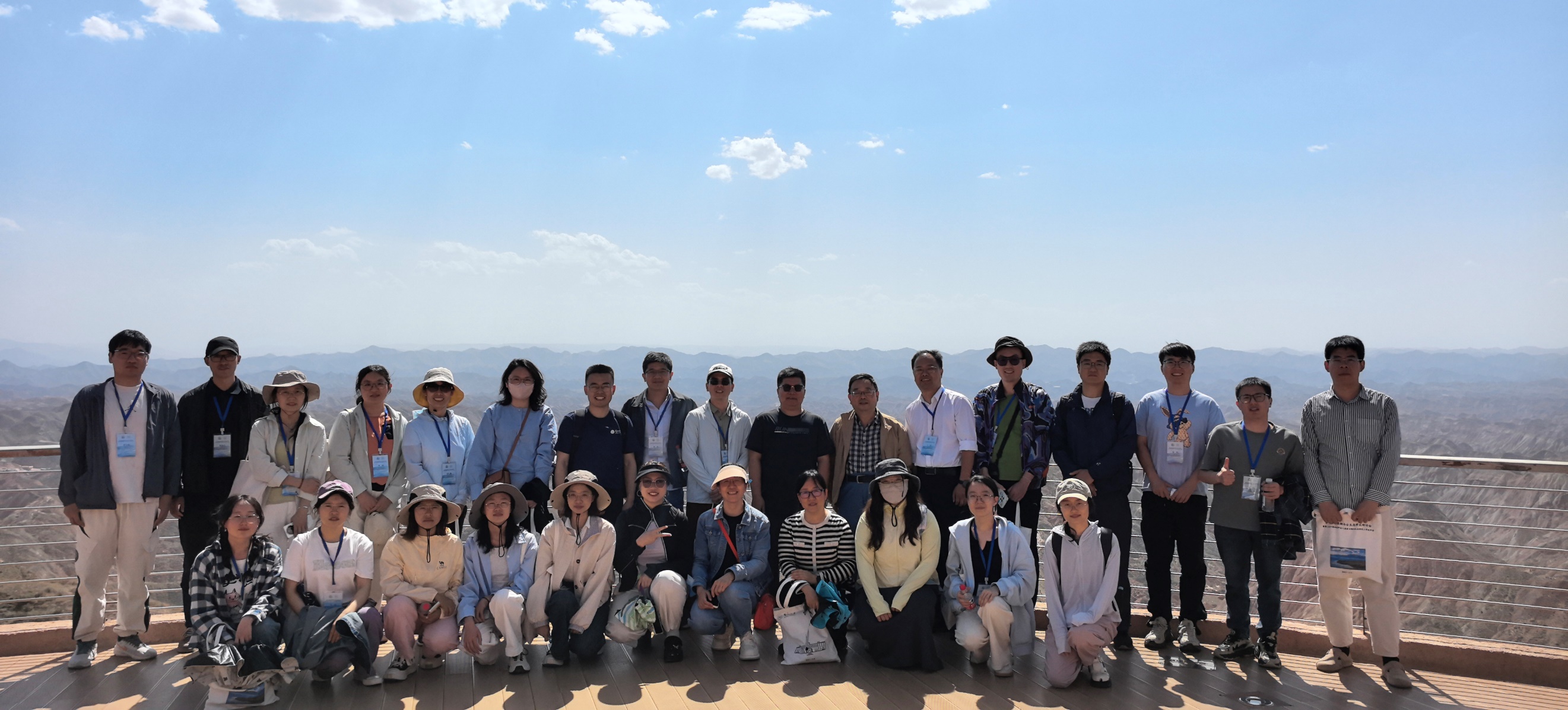
With the joint efforts of the organizing team and participants, the conference concluded successfully. Following the 13th International Paleolimnology Symposium (IPS 2015)hosted by Lanzhou University in 2015, this event marked another academic milestone in paleolimnology. The conference provided a platform for scholarly exchange in lake paleoecology and Anthropocene research in China, advancing lake science and enhancing the influence of Lanzhou University in this field.
